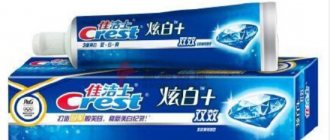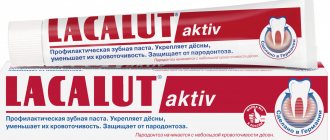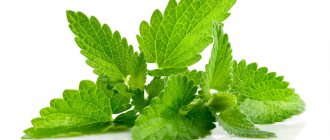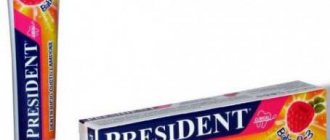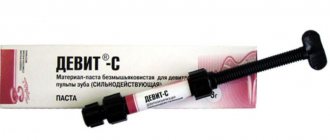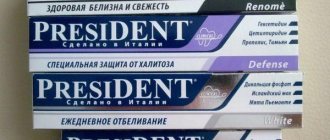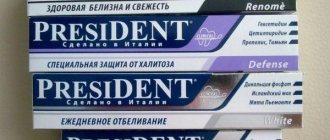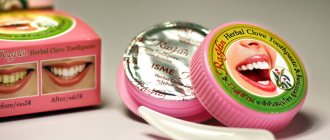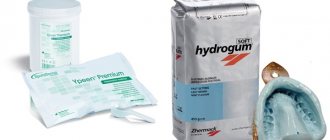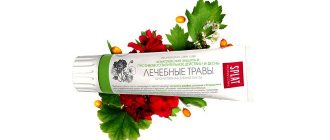All Thai cosmetics and medicinal products are distinguished by their natural composition and effectiveness. Each drug is tested and tested under clinical conditions, so that only the best samples reach the market. Thai toothpastes are no exception. They contain natural extracts and extracts from plants, essential oils and other traditional and exotic ingredients. With the help of unique toothpastes from Thailand, you can actually reduce the frequency of visiting the dentist. These products are different from those that we are used to seeing in mass markets, so read the article carefully to get the maximum benefit from the miracle remedies for the oral cavity.
Manufacturers of Thai toothpastes
Cosmetology and pharmaceuticals are actively developing in Thailand of toothpastes from different manufacturers. the best one for themselves :
- darlie - tourists often call it pasta with a Man in a Hat after the picture shown on the tube. The paste is white or black, with the addition of plant extracts or bamboo charcoal. Freshens breath and whitens teeth.
- twin lotus is a dense black paste that leaves a pleasant menthol taste in the mouth. It contains no dyes or preservatives, and its intense black color is given by cuttlefish bone and seaweed. After regular use, your teeth become whiter, your breath stays fresh longer, and bleeding gums go away.
- kodomo - specializes in children's toothpastes. Contains fruit extracts, mango, coconut, pineapple, has a pleasant taste, gently cares for sensitive children's teeth, and does not contain abrasive particles that scratch the enamel.
- 5 star - it has puck-shaped packaging, which is unusual for Russian consumers. The composition includes essential oils of camphor, cloves, menthol, borneol. Has an excellent whitening effect, removes gum stains and tartar . Reviews for this clove paste are consistently excellent.
- kokliang is a paste with a natural composition, which includes: ginseng, Chinese pearls, borneol, snow lotus, clove and mint essential oils.
- isme - in a round jar with charcoal, which is an absorbent and bleaching agent, it also contains traditional borneol and clove oil.
- Abhai herb is a herbal paste from a tube with a rich brown color. Has a powerful antiseptic and whitening effect. Contains clove and mint oil, betel oil, mangosteen bark powder.
- Quick view
Toothpaste with pineapple and cloves 5 Star Toothpaste with pineapple extract and cloves 5Star 5A Herbal has such a pleasant, tropical aroma that many people choose it because of this. The ability to freshen breath for a whole day is not the only advantage of the drug. Its ability to improve the microflora of the oral cavity, strengthen the gums and roots of the teeth, and eliminate plaque and tartar is also well known.160 ₽
- Quick view
Thai toothpaste with bamboo charcoal 5 Star Thai Toothpaste with bamboo charcoal 5 Star 5A has anti-inflammatory, antibacterial properties, this promotes high-quality cleaning of teeth, gums and the entire oral cavity. In addition to bamboo charcoal, it includes extracts of medicinal herbs selected in accordance with the recipes of Thai traditional healers. This feature of the product makes it hypoallergenic and eliminates the possibility of side effects when using it.160 ₽
- Quick view
Toothpaste with mango and cloves 5 Star Thai toothpaste with mango and cloves 5 Star 5A, due to its anti-inflammatory and antibacterial properties, is able to counteract inflammatory processes in the gum area, heal wounds, destroy up to 99% of oral bacteria, and gives a dazzling smile.160 ₽
- Quick view
Toothpaste with guava and cloves 5 Star Toothpaste with guava and cloves 5Star Cosmetic, due to the bamboo charcoal it contains, has high whitening and cleansing abilities. Extracts of guava, cloves and other plants have an anti-inflammatory, antiseptic effect on the oral cavity, help strengthen the gums and roots of teeth, and get rid of oral bacteria. Caries, periodontal disease, tartar, bleeding gums - all this recedes before the powerful healing effects of the product.160 ₽
- Quick view
Thai toothpaste with noni extract 5 Star herbal 5Star Cosmetic toothpaste with noni extract copes with oral problems much faster and more effectively than other products. Caries, periodontal disease, tartar, smoker's specific plaque, bleeding gums - all this recedes before the powerful healing effects of 5Star toothpaste with noni extract.160 ₽
- Quick view
Coconut toothpaste 5 Star 4A Coconut toothpaste 5 Star 4A can radically improve the condition of teeth and gums. Even teeth yellowed from smoking and drinking strong coffee can be restored to their original healthy appearance and well-groomed appearance. It will not only make your teeth snow-white, but also fill your breath with an exquisite coconut aroma.160 ₽
- Quick view
Thai toothpaste with mangosteen 5 Star herbal Toothpaste with mangosteen 5 STAR Herbal Clove & Mangosteen Toothpaste prevents the development of all known oral diseases. The product must be used in courses of 1–2 months to improve dental health. It destroys pathogenic microorganisms, whitens enamel and freshens breath.160 ₽
Bottom line
By purchasing a cheap exotic product that has not been tested by scientific experiments, you are putting your dental health at great risk. Skimping on toothpaste can result in expensive dental treatment. Thinned enamel, multiple caries, inflammatory processes in the gums - the result of the pursuit of the exotic.
While our domestic herbs and animal supplements have been tested in research institutes and have many years of experience in use, exotic plants and biological supplements have not been studied by anyone. Our doctors cannot answer the question about the benefits or disadvantages of an exotic plant extract offhand.
It is quite possible that the pastes do not harm Thai citizens. But this is due to the quality of their diet and the structure of drinking water. It is possible that the plant extracts and biological extracts indicated on the labels fit harmoniously into the metabolic processes of the Thais and are beneficial. But the experience of using pastes by our compatriots does not give positive results. This should be remembered and known.
Thai products are sold in concentrated form, so the “more is better” principle can simply harm dental health. For one cleaning, a small pea of the product is enough to effectively remove plaque and refresh the oral cavity. Pastes foam well, so an excessive dose can lead to very strong foaming.
You should not be tempted by the cheapness and purchase the treasured jars from street vendors in Thailand or on dubious resources on the Internet. They may sell you a fake instead of real pasta.
Sources used:
- Spielman AI The Birth of the Most Important 18th Century Dental Text: Pierre Fauchard's Le Chirurgien Dentist // Journal of Dental Research, 2007
- Kopetsky I. S., Pobozhyeva L. V. Modern therapeutic and prophylactic means for individual oral hygiene // General Medicine. — 2012
- Fedorov, Yu. A. Oral hygiene / Yu.A. Fedorov. — M.: Medicine
Directions for use (instructions)
Don't know how to use an unfamiliar product? Before first use, you must carefully read the instructions. The first rule: if during use you experience unpleasant sensations - tingling, burning and even pain, stop cleaning. Toothpaste is applied only to a dry brush. You need much less of it than regular product; a pea-sized amount is enough. If the paste is stored in a jar, it is applied to the brush with a special spatula. After use, the spatula is rinsed and put away; contact of the product in the jar with water should be prevented. For cleaning with Thai toothpastes, only soft brushes are used. You don’t need to use them every day—once every three days is enough. Other hygienic cleanings can be carried out with the usual cleaning agent.
Thipniyom - efficiency + safety
High-quality natural Thai paste that keeps teeth and gums in excellent condition and removes tartar deposits. The herbal remedy is safe and effective.
Helps whiten teeth by removing stains from cigarettes, coffee and tea. Its pleasant taste sets it apart from similar ones.
The calcium carbonate contained in the composition prevents the development of caries. The composition consists of essential oils of plant elements such as:
- blue daisies;
- sage;
- myrrh;
- peppermint;
- carnations.
All these components help relieve inflammation and improve the condition of the mucous membrane. Using the paste twice a day will speed up the onset of the expected effect.
Myths and realities of toothpastes from Thailand
There are a lot of stereotypes about Thai drugs and dental drugs in particular that stop buyers. In fact, many beliefs about Thai pastes are harmful myths, which we will now dispel.
Myth 1: Thai oral products are not natural.
They last a long time and change well, which is what opponents of Asian cosmetics use as an argument against it. In fact, Thai pastes contain only natural ingredients, which are balanced in such a way that they are preserved without the use of modern drugs.
Myth 2: Thai toothpastes scratch tooth enamel.
In fact, particles of clay, bamboo charcoal and other whitening substances are so well processed before entering the toothpaste that they do not trust the enamel. If you are afraid of damaging the coating of your teeth, use products without abrasive particles. There are many such pastes among the range of Thai cosmetologists.
3rd myth: exotic ingredients can harm Europeans.
Yes, herbal toothpastes from Thailand contain specific ingredients, such as coconut or Chinese pearls, which are unusual for Russian buyers. But this does not mean that they will not contribute to the health of his teeth. The only thing you need to take care of is that you are not allergic to this extract. with before use . If after an hour no rash or irritation appears in this area, you can brush your teeth. If discomfort occurs during cleaning, it is better to stop the hygiene procedure.
Myth 4: Toothpastes from Thailand are not tested for effectiveness.
This may apply to artisanal pastes or counterfeits of well-known brands. Products imported undergo all stages of clinical testing, effectiveness and safety testing. Famous Thai manufacturers strive to earn credibility among their customers, so they do everything to increase loyalty to their own brand.
Flaws
The biggest drawback of this product is that the contents do not correspond to what is indicated on the packaging. Manufacturers write only about those qualities of their products that can attract a gullible buyer. Often, pastes contain harmful components that negatively affect the condition of the enamel and soft structures of the oral cavity.
The price to pay for the desire to have a stellar smile can be the abrasion of enamel and damage to the structure of the teeth. Buyers should be aware that herbal formulations without preservatives have a limited shelf life. However, manufacturers conceal information about the use of these products in their products.
Pastes made from natural ingredients cannot foam. Foaming indicates the presence of active substances of a synthetic nature in the composition. Herbal components themselves do not have the high cleansing characteristics that manufacturers claim. This means that the composition of Thai pastes contains abrasive substances that are harmful to the enamel.
Thai herbal pastes contain sodium lauryl phosphate and preservatives.
Advertising of Thai products on the Internet is also based on information from manufacturers, that is, not verified. You can verify the effectiveness or harm of Thai products only from your own experience - by purchasing the toothpaste offered at your own risk.
Enamel whitening occurs mechanically, that is, by removing its top layer. Therefore, after some time, teeth become sensitive to hot/cold food. Achieving a white smile can simply destroy the covering layer of enamel and cause dental problems.
Reviews from customers and dentists about Thai toothpastes
Since childhood, I have had yellowish tooth enamel. No matter what I did, no matter how expensive pastes I bought, nothing helped. Professional cleaning also helped to lighten the enamel by just a couple of tones, and even then not for long. My sister from Thailand brought me whitening toothpaste as a gift. In light of my upcoming wedding, I took the risk of trying it after reading reviews from dentists. I was surprised by the result - coconut paste really whitens! There is a small side effect - tooth sensitivity has become stronger. But this was most likely because I used it every day. I started cleaning it as expected once every three days - everything came back. I finally got a snow-white smile in my wedding photos!
Due to my duty, I know all the advantages and disadvantages of modern toothpastes. I am a dentist in a clinic. I used the most expensive professional products for myself, not believing in natural remedies. One day, out of curiosity, I tried Thai toothpastes. Now I don’t resort to professional cleaning, I just brush my teeth with this paste every three days for a month, and they noticeably whiten. The only thing I would not recommend to my patients is not to use it if their teeth are highly sensitive. You can get more problems with your teeth than improve them. Otherwise, excellent natural remedies!
I have been looking for an absolutely safe toothpaste for my children for a long time. I chose a Thai product and tested it on myself first. A paste with a pleasant pineapple flavor, soft consistency, and without abrasive particles that scratch your teeth. The composition is more than excellent: no harmful preservatives, chemicals or other poisons. I am happy to order Thai pasta for both myself and my children!
Wangrom - both tasty and healthy
Pleasant aroma and taste are the main distinguishing features of this brand. However, its cleansing and antiseptic qualities are in no way inferior to its analogues.
Removes plaque from the surface of teeth, prevents the formation of stone, and prevents oral diseases.
Composition basis:
- camphor;
- sorbitol;
- borneol;
- sodium chloride.
Possible complications
A number of features that Thai products have require strict adherence to the rules for their use.
Neglect can lead to the following complications:
- increased sensitivity of enamel;
- damage to the tooth surface with highly abrasive pastes;
- development of carious lesions;
- bleeding gums due to strong exposure to fine-grained components.
What is dangerous about acute herpetic stomatitis in children and what treatment methods are effective. In this article, we suggest finding out when you can start brushing your child’s teeth.
Follow the link https://dr-zubov.ru/lechenie/zuby/analiz-sovremennyx-i-bezopasnyx-lekarstv-ot-boli.html to find out which medicine for toothache is the best.
Within reality
The desire to sell as many products as possible leads to some distortion of information regarding the composition and effectiveness of the product.
The paste does not contain synthetic substances
Despite the significant mass of natural ingredients contained in the paste, it is impossible to do without preservatives and thickeners..
They help increase the shelf life of the product.
Inability to harm
Such a contrast with Russian analogues is biased.
Improper use of any product can cause damage to the surface, while use according to the rules will give a visible result.
100% quality product
In Thailand, there is no strict certification of products, which raises doubts about the naturalness and harmlessness of many components.
In the video we offer additional information about the real composition and action of some types of Thai pastes.
Abhai herb - worth a try
Plant components give this type of paste an unusually dark color. In addition, it has a rather unpleasant aroma and taste.
However, due to its excellent disinfectant properties, this paste is widely used. It helps to cope with a number of gum problems and has a healing effect on the oral cavity as a whole.
The paste contains:
- guava leaf extract;
- peppermint oil;
- orange tree essential oil;
- mangosteen bark, ground into powder.
Main components of the compositions
Each manufacturer uses its own unique formula, so the components of different pastes are slightly different.
But there is a list of active substances that are most often included in the base:
- To restore healthy microflora, the product is enriched with a natural antiseptic - borneol.
Silicon/titanium dioxide.
- Aluminium oxide.
- Ground cuttlefish bones.
- Bamboo charcoal.
- Calcium carbonate.
The anti-inflammatory effect is provided by extracts and extracts:
- carnations;
- mint;
- guava;
- miswaki;
- murayi;
- Clinacanthus.
Essential oils are also used in production. And to restore healthy microflora, the product is enriched with a natural antiseptic - borneol. Its properties are identical to camphor, but there is no toxic effect.
Reference! Thai recipes do not include the addition of chemicals, synthetic fragrances, or pigments. This indicates the safety of the paste.
